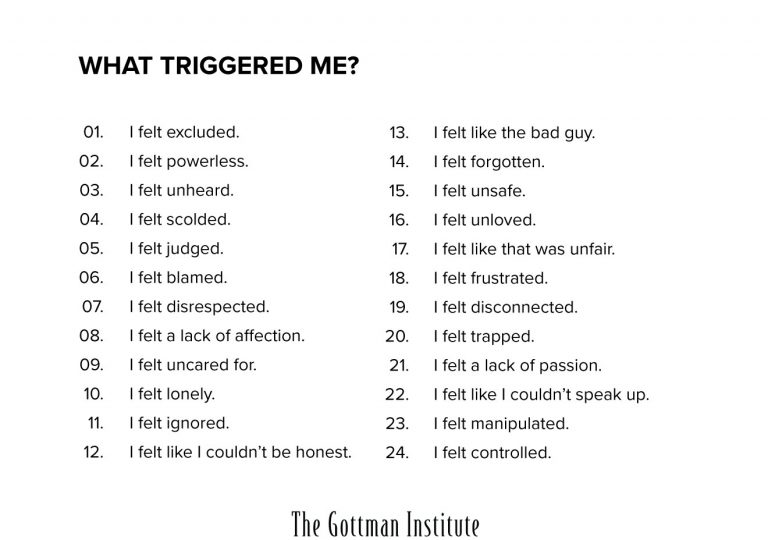Here’s how to process fights and regrettable incidents with tips on how to identify and understand what triggers you and your partner. Working on understanding each other’s triggers is one of the most important things that you can do to avoid hurting one another. Next time you are processing a fight or a regrettable incident, try the following:
Identify the triggers for each of you: What escalated the interaction?
Put in your own words what escalated the interaction for you. These are often old and familiar feelings. Here are some common examples:

Understand why these are triggers
- Rewind the story of your life in your mind. Stop at an incident you remember from your childhood or your past in general (not in this relationship) in which you got triggered in the same way or had some of these very same feelings.
- Tell the story of that incident, how it happened, what you felt. Listen to your partner’s story with empathy.
Figure out how to make it better next time
Consider these questions:
- What is one way that your partner can make it better next time this kind of incident happens?
- What is one way that you can make it better next time?
These questions require a great deal of introspection and emotional energy. To figure out what is happening within yourself is difficult and explaining what may be deeply personal experiences to your partner may make you feel scared and vulnerable. Everyone experiences these emotions, but keep in mind that the preceding exercise can be of great benefit to your relationship.
When you and your partner connect the feelings that come up for you in the present with your experiences in the past, you gain insight. You start to understand what’s really going on in each other’s minds. This understanding is invaluable as you grow in your relationship together. As you learn the stories behind your partner’s triggers, you begin to understand where they are coming from. Their sudden attacking or defensive behaviors in conflict start to make sense.
With this knowledge, you can identify which behaviors to avoid, so that the two of you don’t accidentally set each other off. If you use these tools to help you process fights, you will not only learn to have more constructive conversations when conflicts come up, but you will learn more about each other, and grow closer than ever.







